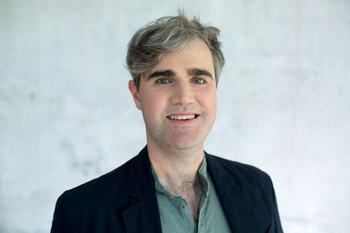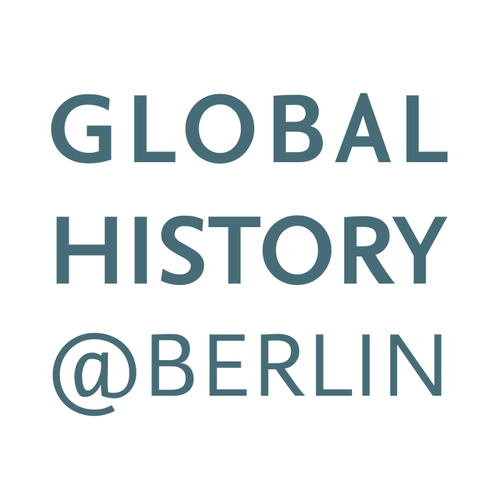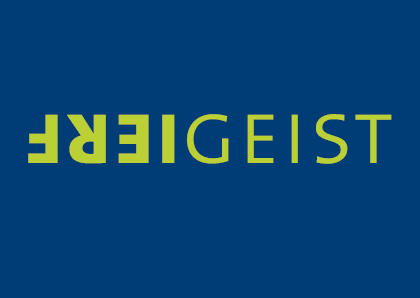Dr. Timothy Nunan

Project Director
Russian and Soviet History, History of the Middle East, Global and Transnational History
Koserstrasse 20
Room A108
14195 Berlin
Office hours
Please contact me via e-mail to arrange a meeting.
Timothy Nunan is a scholar of international and global history. His work focuses on the history of Russia and Eurasia–Central Asia, Iran, and Afghanistan–in an international context. He has received language and thematic training in both European, Russian, and Eurasian history; material and intellectual encounters across this space form one of his main areas of interest and expertise. Since October 2016, he works as an Assistant Professor (Wissenschaftlicher Mitarbeiter) at the Center for Global History at the Free University of Berlin. His position and current research is funded by aFreigeist Fellowship from the Volkswagen Foundation.
Timothy received his intellectual training to this point at Princeton (A.B., 2008), the Georg-August-Universität Göttingen and the Humboldt-Universität zu Berlin, where he was a Fulbright Scholar from 2008-2009, and Corpus Christi College of the University of Oxford (M.Phil., 2011), where he was a Rhodes Scholar. After receiving a D.Phil. in History at Oxford, he began as a Harvard Academy Scholar at the Harvard Academy for International and Area Studies.
While at Harvard in 2013-2014, he re-wrote his dissertation into an academic monograph, entitled Humanitarian Invasion: Global Development in Cold War Afghanistan. The book examines the history of international development and humanitarianism in Afghanistan from roughly the beginning of the Cold War through to the rise of the Taliban. Based on archival research in several languages and dozens of interviews, Humanitarian Invasion follows the American hydrologists, German foresters, Soviet gas engineers, French doctors, and Swedish NGO activists who contested the transformation of the Afghan state from the mid-1950s to the early 1990s. The book seeks, in other words, to write the global history of development and humanitarianism through the prisms of the Soviet Union & Afghanistan. Humanitarian Invasion was published in February 2016 as a monograph in the Global and International History Series of Cambridge University Press, edited by Erez Manela, John McNeill, and Aviel Roshwald.
During the 2014-2015 academic year, Timothy was a visiting scholar at the Zentralasien-Seminar of the Humboldt-Universität zu Berlin. There, with the support of a fellowship from the Alexander-von-Humboldt Foundation, he began conducting research for a second book project titled The Islamic Factor: Socialists, Islamists, and the Soviet Union in Cold War Eurasia. The conflict between the United States and the Soviet Union has long been understood in an international context, but little is known about the ways in which the Cold War shaped and transformed the superpowers’ relationship to political Islam. This is all the more surprising, since whether in its Shi’a revolutionary form in Iran, or its Sunni national and global iterations pioneered in Afghanistan, political Islam represented the most potent ideological challenge to American liberalism or Soviet Marxism-Leninism to emerge from the Third World. Nunan’s new project explores the relationship of the Soviet Union and socialist movements toward political Islam—or, as Soviet scholars called it, “the Islamic factor”—in the twentieth century. In doing so, it seeks to historicize present debates about a “Clash of Civilizations” from the perspective of the Soviet Union and Middle Eastern actors. As such, it also aspires to contribute to public understanding about Russia’s engagements past and present in the Middle East and Central Asia. Nunan continued work on this project during a subsequent year at the Harvard Academy for International and Area Studies in 2015-2016 prior to his current appointment at the Free University of Berlin.
In addition to working on these projects at the intersection of area studies and global history, Timothy also has a strong interest in the history of international thought. While supported by the Fulbright Scholarship in 2008-2009, he completed translations of several of Carl Schmitt’s most important inter-war works on war and international order. A collection of these works–complete with a critical introduction to Schmitt’s inter-war writings and an extensive scholarly apparatus–was published by Polity Press in 2011 as Writings on War.
From 2014–2017, Timothy was the Executive Director of the Toynbee Prize Foundation, where he ran the Global History Forum, interviewing other historians on global and international history. An archive of his interviews from his tenure at the Toynbee Prize Foundation is available at the Writings page. Since 2017, he is a co-editor of the Columbia Series in Global and International History along with Dominic Sachsenmaier and Cemil Aydin; since 2018, he is a member of the Editorial Collective of the journal Humanity along with Ayça Çubukçu, Tobias Kelly, Angela Naimou, Vasuki Nesiah, and Jessica Whyte.
Freie Universität Berlin:
The Global Cold War (Winter Semester 2017-2018)
History of Global Development (Winter Semester 2018-2019)
Islamism and Pan-Islamism in History (Winter Semester 2020-2021)
Racism In International Relations (Summer Semester 2021)
Rise and Fall of Russian Global Power (Winter Semester 2016-2017)
Russia and the Middle East (Winter Semester 2017-2018)
The Russian Worlds of Islam (Winter Semester 2018-2019)
Socialist Internationalism in History (Summer Semester 2021)
Harvard University:
Eurasia in the Twentieth Century (Fall Semester 2015-2016)
Books:
- Humanitarian Invasion: Global Development in Cold War Afghanistan (Cambridge: Cambridge University Press, 2016)
- Carl Schmitt, Writings on War (Cambridge: Polity Press, 2010), ed. and trans.
Articles:
- “‘Doomed to Good Relations’: The USSR, the Islamic Republic of Iran, and Anti-Imperialism in the 1980s,” The Journal of Cold War Studies (forthcoming Winter 2021)
- “Asymmetries of Internationalism – Performing and Remembering Subnational Internationalism in the Age of Developed Socialism,” The Russian Review 80:4 (September 2021): 681-698.
- “‘Neither East Nor West,’ Neither Liberal Nor Illiberal? Iranian Islamist Internationalism in the 1980s,” Journal of World History 31:2 (2020): 43-77.
- “From Land Reform to Veterinarians Without Borders in Cold War Afghanistan,” Comparativ 27:2 (2017)
- “The Violence Curtain: Occupied Afghan Turkestan and the Making of a Central Asian Borderscape,” Transcultural Studies 1 (2017).
- “An Empire Reframed: Sovinformbiuro, Postwar Soviet Photography and Visual Orders in Soviet Central Asia,” Kritika: Explorations in Russian and Eurasian History 17:3 (Summer 2016).
- “Ecologies of Socialism: Soviet Gradostroitel’stvo and Late Soviet Socialism,” Journal of Eurasian Studies 3:2 (July 2012)
- “Getting Re-Acquainted with the ‘Muslims of the USSR’: Staging Soviet Islam in the Muslim World, 1978-1982,” Ab Imperio 4 (2011)
- “Under a Red Veil: Staging Afghan Emancipation in Moscow,” The Soviet and Post-Soviet Review, 38:1 (2011)
- “Soviet Nationalities Policy, USSR in Construction, and Soviet Documentary Photography in Comparative Context, 1931-1937,” Ab Imperio 2 (2010)
Chapters in Peer-Reviewed Edited Volumes:
- “Persian Visions of Nationalism and Internationalism in a World At War,” in Beyond Versailles: Sovereignty, Legitimacy, and the Formation of New Polities After the Great War (Bloomington, IN: Indiana University Press, 2019)
- “The Soviet Elphinstone: Colonial Pasts, Post-Colonial Presents, and Socialist Futures in the Soviet Reception of British Orientalism,” in Mountstuart Elphinstone in South Asia: Pioneer of British Colonial Rule, ed. Shah Mahmoud Hanifi (London: Hurst, 2018)
- “Graveyard of Development? Afghanistan’s Cold War Encounters with International Development and Humanitarianism,” in The Development Century: A Global History, eds. Erez Manela and Stephen Macekura (Cambridge: Cambridge University Press, 2018)


